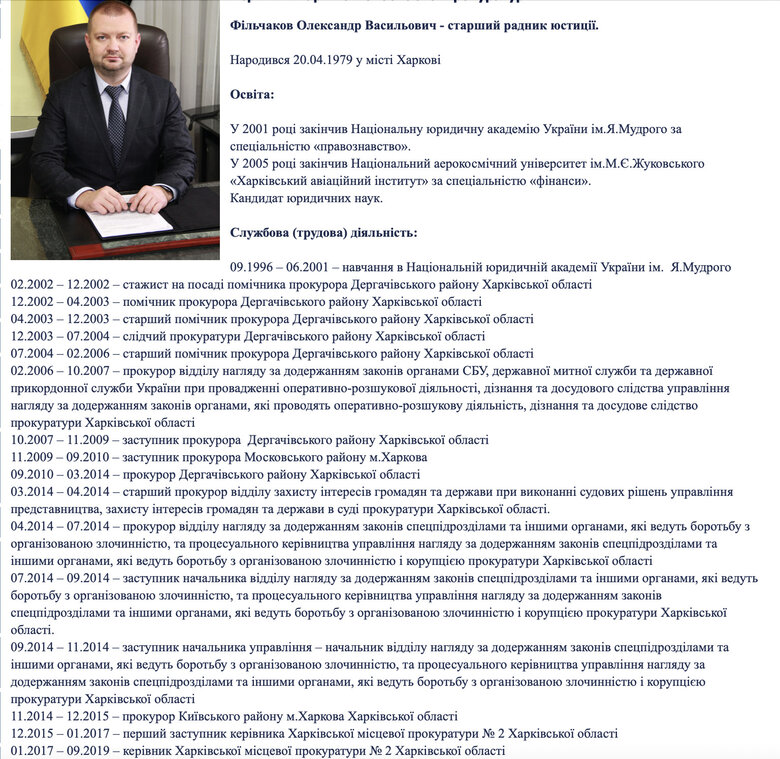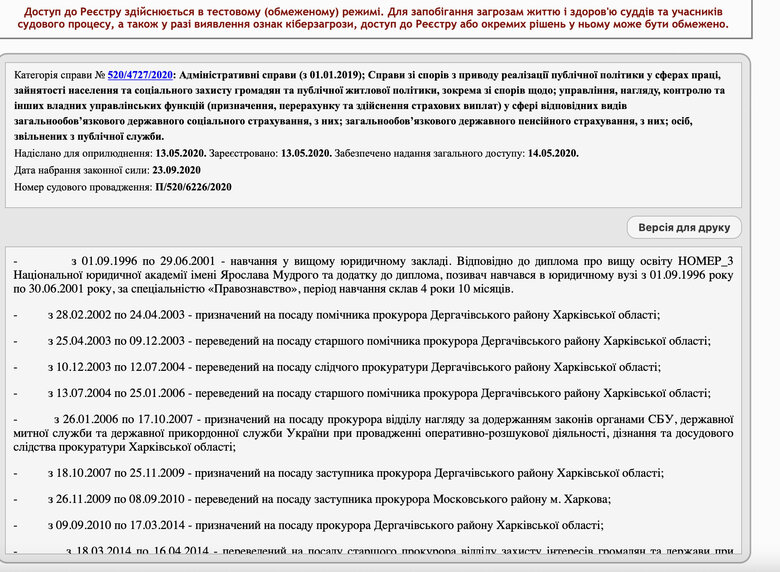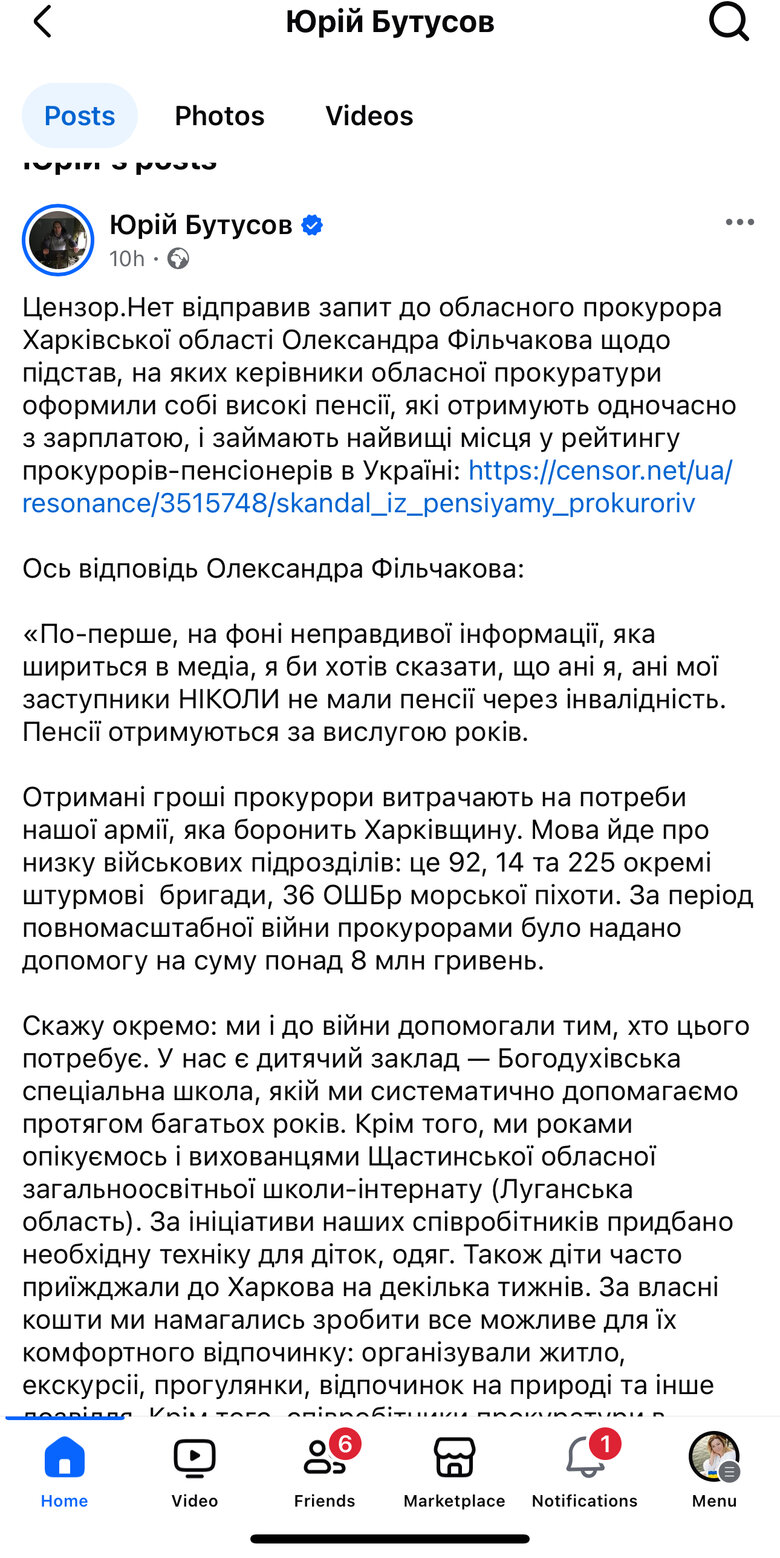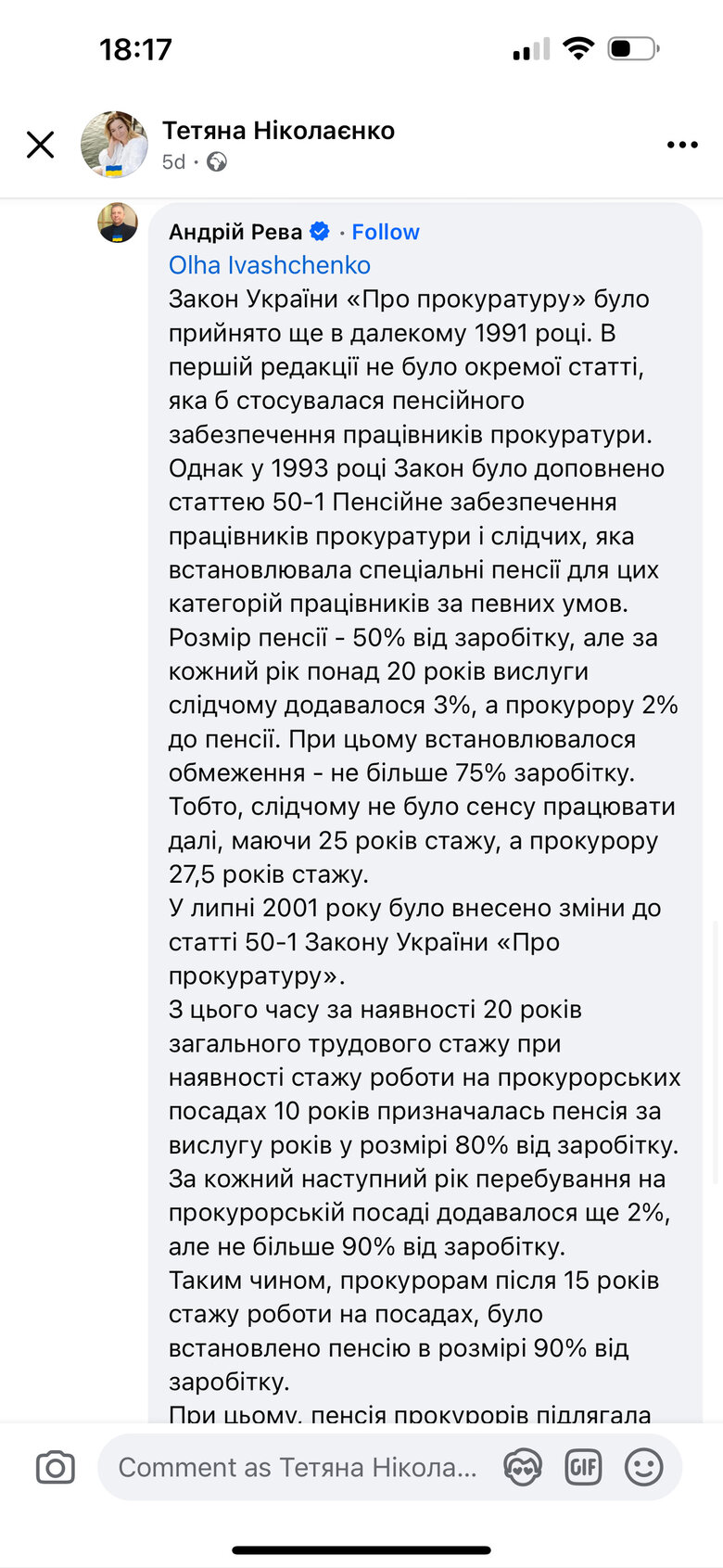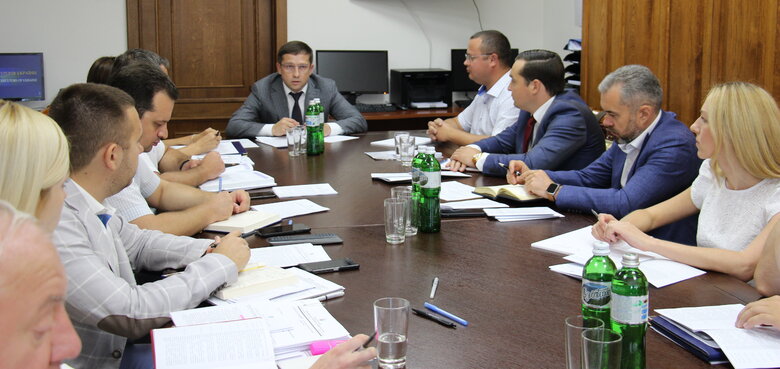Pensions scandal: why Prosecutor General had left and issue of salaries and pensions remained
The problem of high pensions for prosecutors, which are often received as a result of receiving a second disability group, remains unresolved.
The Verkhovna Rada has voted to dismiss Andrii Kostin from the post of Prosecutor General. According to MP Yaroslav Zheleznyak, the decision was supported by 255 MPs.
The candidacy of the new Prosecutor General is unknown. Bankova Street is looking for someone who is not "muddied", so for the time being, the first deputy will be acting.
At the same time, the problem of high pensions of prosecutors, which are often received as a result of receiving a second disability group, remains unresolved.
For example, Mykhailo Podoliak, an adviser to the head of the Presidential Office, suggested returning the money paid. "They have to return it (illegally received disability pensions) and pay the same amount on top," Podoliak said during a telethon.
In fact, it is difficult to implement such an idea in life.
"If it is proved that the disability was obtained on the basis of false information, then claims must be filed within criminal proceedings. This is not easy. Only if doctors turn in their own people," one of the law enforcement officials told Censor.NET on condition of anonymity.
"I know from experience that there is mutual responsibility, and investigators used to say in the old days that inadequate medical care or a doctor's mistake was one of the most difficult categories of cases. Of course, it is possible to establish whether a person is disabled or not. But then there are proceedings and a trial," the source said.
However, as Censor.NET has already written, not all prosecutors have received their million-dollar pensions due to disability. For many of them, the reason for this was the decision of the Constitutional Court, which cancelled the new provisions of the Law "On the Prosecutor's Office".
For example, this is how Oleksandr Filchakov, the former head of the Kharkiv Region Prosecutor's Office, received his pension.
His case can be found in the register of court decisions. Despite the fact that the register does not contain the names of individuals, Filchakov is quite easy to identify, as the text of the court decision contains his entire work history, identical to that posted on the website of the regional prosecutor's office.
Referring to the decision of the Constitutional Court, the court, justifying the fairness of the increase in Filchakov's pension, stated:
"Rules on pension provision for persons to whom pensions are granted in accordance with Article 50-1 of the Law of Ukraine "On the Public Prosecutor's Office" dated 05.11.1991 No. 1789-XII (as amended by the Law of 12.07.2001 No. 2663-III) apply not only to prosecutors who had the required length of service to be eligible for a pension for years of service before the new legal regulation came into force, but also to those who started their professional activities as prosecutors during the period of legislation that provided for the right to a pension for years of service with at least 20 years of service."
Despite the fact that in his response to Censor.NET Filchakov noted that the pension allocated to him was also used to make donations to the military and to care for children from an orphanage, he wrote a letter of resignation.
According to Filchakov' s declaration, his pension in 2023 was 823 thousand and 71 hryvnia.
On the same day, five more heads of prosecutor's offices wrote in their resignations.
In addition, on 25 October, the Council of Prosecutors supported amendments to the Law "On the Prosecutor's Office", which are intended to prevent prosecutors from receiving pensions at the same time as their salaries.
According to these proposals, prosecutors will be paid a pension for years of service only after they leave their jobs. That is, according to the principle: either salary or pension, Kostin said. He added that the relevant developments will be submitted to the subject of the legislative initiative.
However, even if such a law is adopted, who is to say that it will not eventually suffer the fate of its predecessor? When will the previous rule of law be restored by a decision of the Constitutional Court?
The decision in the Filchakov's case shows how this can work in the future.
"The Court notes that the Constitutional Court of Ukraine has repeatedly considered issues related to the exercise of the right to social protection and has formulated a legal position according to which the Constitution of Ukraine distinguishes certain categories of Ukrainian citizens who need additional guarantees of social protection by the state. These include, in particular, citizens who, in accordance with Article 17 of the Constitution of Ukraine, serve in military formations and law enforcement agencies of the state, ensuring the sovereignty and territorial integrity of Ukraine, its economic and information security, namely: in the Armed Forces of Ukraine, the Security Service of Ukraine, police, prosecutors, state border protection, tax police, the State Protection Department of Ukraine, the State Fire Service, the State Department of Ukraine for the Execution of Sentences, etc. (decision of the Constitutional Court of Ukraine No. 8-rp/99 dated 06.07.1999 in the case of the right to benefits and No. 5-rp/2002 dated 20.03.2002 in the case of benefits, compensations and guarantees) - the decision states.
And how did prosecutors end up in such circumstances, you may ask?
Andrii Reva, former Minister of Social Policy in the Groysman government, described in detail how the situation with prosecutors' salaries and pensions has evolved.
"The Law of Ukraine 'On the Prosecutor's Office' was adopted back in 1991. In its first version, there was no separate article on pensions for prosecutors. However, in 1993, the Law was supplemented by Article 50-1 Pension provision for prosecutors and investigators, which established special pensions for these categories of employees under certain conditions. The amount of the pension was 50% of earnings, but for each year over 20 years of service, 3% was added to the pension of an investigator and 2% to the pension of a prosecutor. The limit was set at no more than 75% of earnings. That is, it made no sense for an investigator to continue working with 25 years of service, and for a prosecutor with 27.5 years of service," Reva recalled.
In July 2001, Article 50-1 of the Law of Ukraine "On the Prosecutor's Office" was amended. Since then, upon completion of 20 years of total work experience and 10 years of service as a prosecutor, a long service pension of 80% of earnings was granted. For each subsequent year of service as a prosecutor, another 2% was added, but not more than 90% of the salary.
Thus, after 15 years of service, prosecutors were granted a pension of 90% of their earnings, the former minister said.
At the same time, the pensions of prosecutors were subject to indexation, just like ordinary pensions of citizens.
"In 2015, the amount of prosecutors' pensions was reduced to 60% of their earnings, and in 2017, the indexation of prosecutors' pensions was stopped. Under Zelenskyy, prosecutors restored amounts of their pensions through the courts - 80% to 90%, citing Article 22 of the Constitution of Ukraine, which prohibits the adoption of new laws or amendments to existing laws to limit the scope of existing rights of citizens. In addition, contrary to the legislation on pensions, the courts ruled that the period of studying at a university after 2004 should be included in the length of service of prosecutors. That's how it was," Reva said.
Even in Filchakov's case, it is clear that his studies at the Yaroslav the Wise Academy were included in his seniority. For some reason, this provision was retained for prosecutors, although it was cancelled for other Ukrainian citizens.
But there is another nuance. Even those prosecutors who did not run after million-dollar pensions and disabilities believe they have the right to maintain the status quo.
"All of us who have been working for a long time have pensions. Of course, not 100 thousand. We are entitled to 10 to 20 thousand. They pay 10-14 thousand. The law allows for long service retirement. Because in fact, when we came and when we had labour relations, the prosecutor's office had a different function. We actually lived at work. There was an investigation, general supervision. Investigators and we, as assistants in the districts, went to the corpses every night. Saturday was a mandatory working day. Sunday - as needed. That is, quite often. The practice of pensions for such professions with such functions exists in many countries around the world. Then came the reform and these difficult functions were removed. The retirement age was increased to 25 years," one of the prosecutors told Censor.NET.
According to him, if the law is passed on either wages or pensions, no one will receive them. But, the source says, these payments were a way to keep the team together.
In addition, prosecutors are irritated why they receive less than in the SBI.
"I'll quote a colleague: If the state has no money, why does the SBI have a salary of 100,000 for an operative in the district, and only 40,000 for a prosecutor who has a greater scope of responsibility? Then everyone should be given the same salary. Then it will be fair for everyone," the source says.
"Because no one understands that prosecutors have the lowest minimum wage among other law enforcement officers. The NACP - 3 thousand, the court - 2 and a bit. And prosecutors have UAH 1600. That is some kind of unfair approach to the calculation," the prosecutor said.
Last year, the Council of Prosecutors asked for a review of salary calculation.
It looks like they will get their way this year. At least the Budget Committee did not support the amendment to cancel the increase in prosecutors' salaries.
Therefore, prosecutors' salaries will rise by 37%, and, according to Nina Yuzhanina's calculations, may amount to an average of 68 thousand.
"When I asked what the average salary of prosecutors is now, I was told that it was 68 thousand hryvnias," the MP said.
But when the law "On the Prosecutor's Office" will be amended and whether clever prosecutors will find a way around it, we will probably find out when the scandal is forgotten.
Tetiana Nikolaienko, Censor. NET

